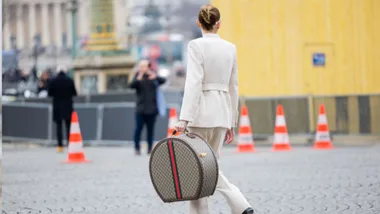Fourth generation weaver Marta Cucchia is a woman driven by passion. That’s evident from the moment we step foot inside the 11th century church that serves as her studio in the hillside city of Perugia.
With a broad smile, and her two devoted dogs at her heels, she greets our group – led by Trafalgar travel director Tony – and we step inside her workshop housed in an old monastery. As we explore her extraordinary space, she explains to us that her mission is to preserve the area’s proud tradition of hand weaving, a skill she picked up from her grandmother, who formed a local textile studio in the wake of World War Two with a team of local weavers.
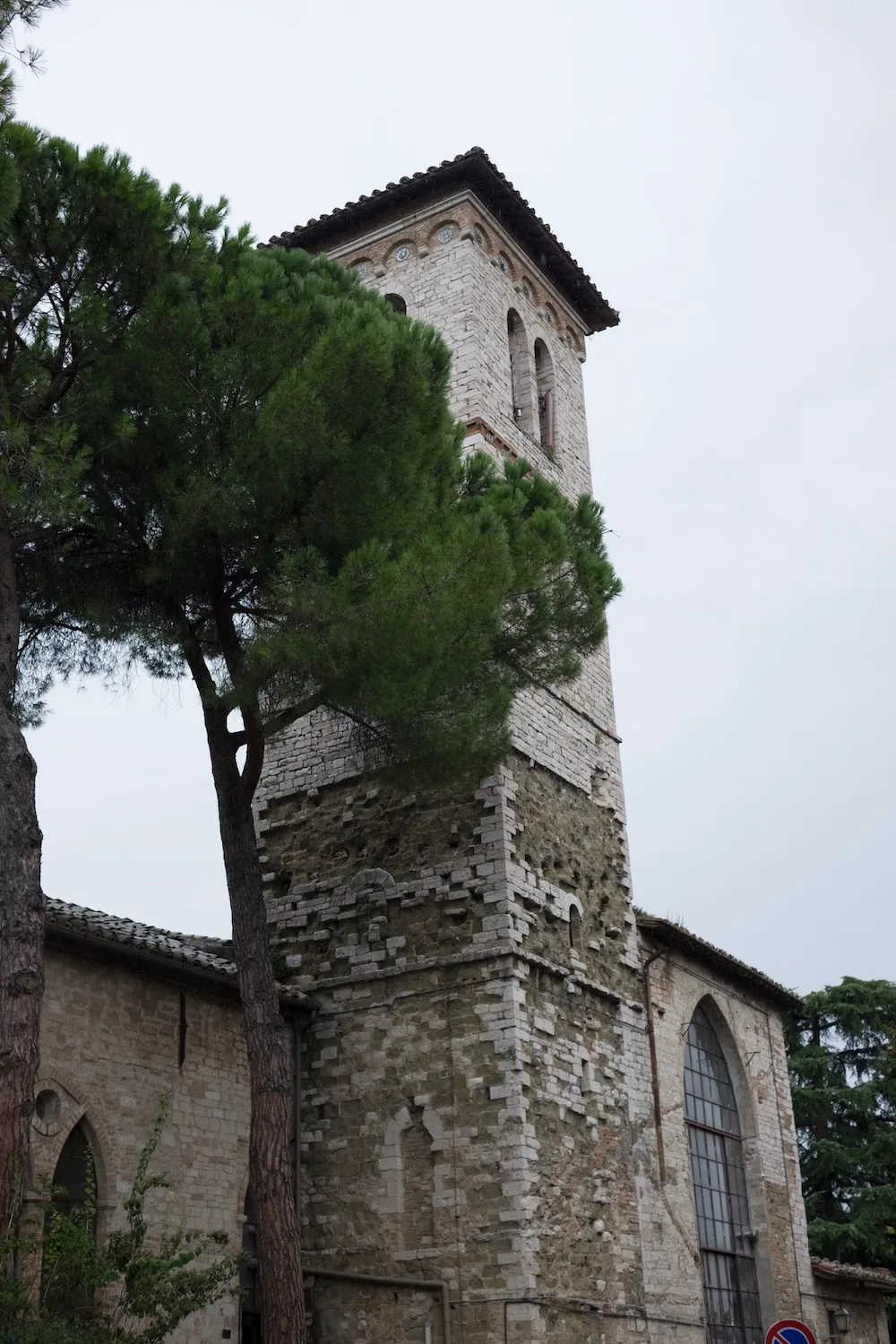
“Learning to weave takes usually quite a long time, but for me it was immediate, it seems it was in my blood,” Cucchia tells us, as she demonstrates how her loom dating back to 1750 works.
Time to find out if it’s in my blood. With, let’s be honest, great patience, she allows Julie and I to try our hands at the weaving.
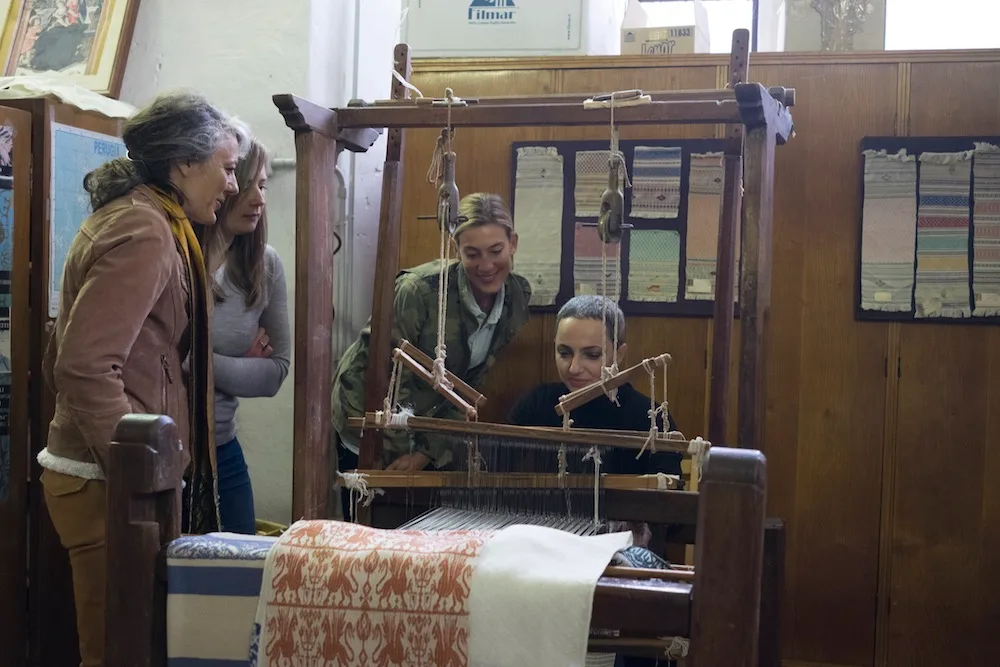
Her loom is an incredible feat of 18th century woodwork, with four paddles painstakingly threaded with wool interweaving with each other. Moving the paddles up and down with what seems like second nature, Cucchia sends a vessel called a shuttle – laced with more wool – back and forth, creating the intricate stitches in the beautiful handwoven fabric. It’s a laborious practice and consequently does not generate a huge amount of income, especially considering it can take days to produce only a foot or two of cloth.
In Cucchia’s hands, it doesn’t look too hard. But the second I sit down in the chair it’s abundantly clear that I might be many things but a natural weaver I sadly am not. At least my friend Julie is as clumsy as I am when it comes to picking up this almost-forgotten artisanal skill – and there’s plenty of laughter as we try in vain to emulate Cucchia’s deft handiwork.
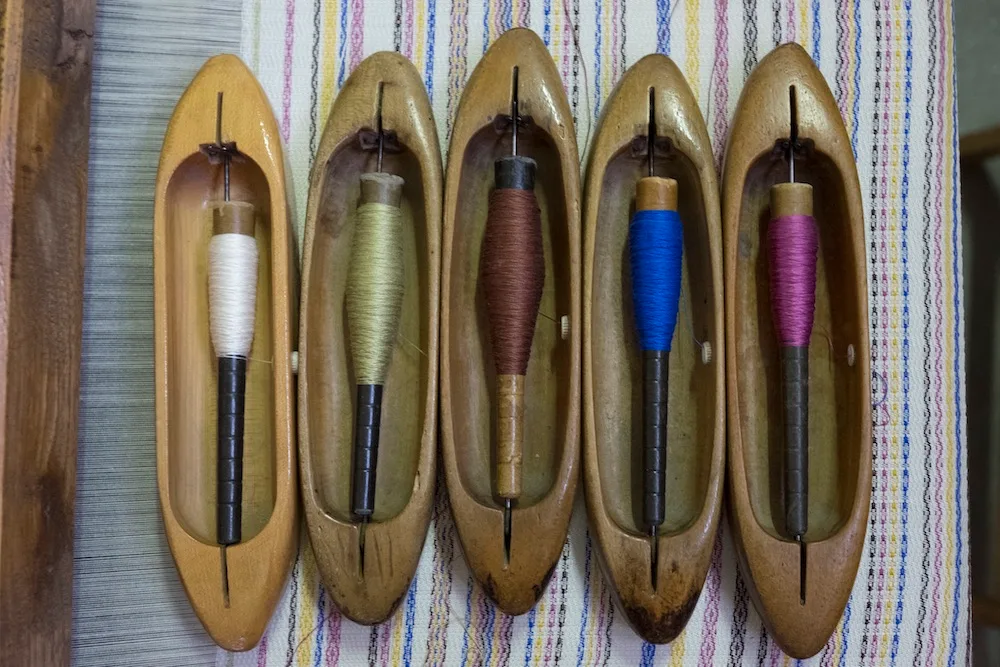
Best to leave it to Cucchia, who today meticulously and reverently recreates fabric from Renaissance paintings, assisted by her two employees, both women in their 80s.
“Weaving is like a drug, once you start you can hardly stop,” she tells us. “Every day you create a new design and while doing it already think about the next one. It is very challenging and rewarding.”
Daniela travelled to Italy as part of a Trafalgar tour.
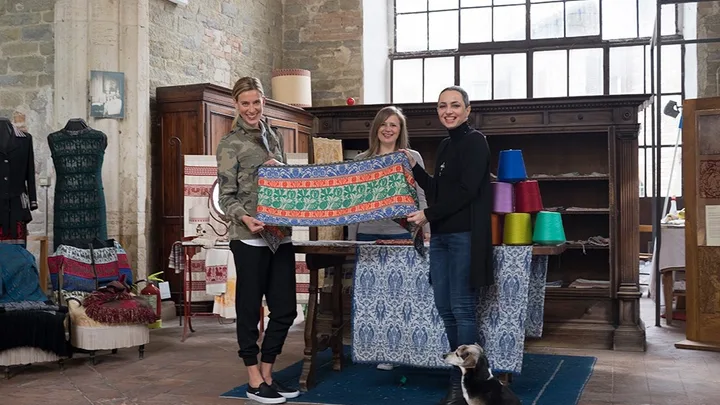 Marie Hennechart
Marie Hennechart
